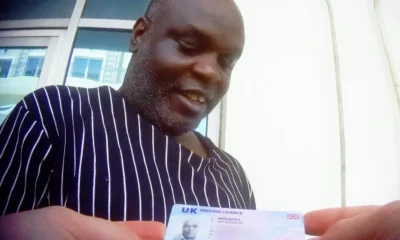Brian Mukalazi
Who borrows $10 million by mistake?
In their 2012 well-written book, Why Nations Fail, authors Daron Acemoglu and James Robinson described the contrast between how Bill Gates – from the United States of America, a developed country – and Carlos Slim – from Mexico, a developing country – became the two world’s richest men.
The authors observed that, on one hand, the rise of Bill Gates and Microsoft were well known, but Gates’ status as the world’s then richest person and the founder of one of the most technologically innovative companies did not stop the U.S government from keeping an eye on him and his business.
Indeed, since its inception, multiple civil actions, inquiries and penalties have been instituted against Microsoft. For instance, in November 2001, after it was found to be non-compliant to several regulations, Microsoft suffered serious penalties at the hands of the U.S Justice Department.
On the other hand, in Mexico, Carlos Slim did not make his money by innovation. His major breakthrough came in 1990 when he acquired Telmex, the Mexican telecommunications monopoly from the government.
Even though Slim did not put in the highest bid, a Consortium led by his company won the auction. And instead of paying for the shares right away, he managed to delay payment, using dividends of Telmex to pay for the stock.
Carlos Slim, an ambitious man from a relatively modest background of Lebanese immigrants, has been a master at obtaining exclusive contracts; he managed to monopolize the lucrative telecommunications market in Mexico, and then later extended his reach to the rest of Latin America. There have been challenges to Slim’s business monopoly. But they have not been successful.
The economic institutions that made Carlos Slim rich are very different from those in the United States. He has made his money in the Mexican economy in large part thanks to his political connections and unfair government incentives. Carlos Slim has the power to get what he wants but Bill Gates’ power is far more limited.
The facts described in the above two scenarios, especially in Carlos Slim’s case, are not any different from those being experienced in Uganda. In Uganda, just like in Mexico, wealthy entrepreneurs and businessmen thrive not because of their talents, but largely because of who they know, who they can influence, and yes, who they can bribe.
The on-going $10 million loan dispute between Vantage Mezzanine, a South African venture capital firm, and the Ugandan-based Simba Group of Companies and their promoter Patrick Bitature, is a classic example of the above argument and how entrepreneurs and businesses operate in poor countries like Uganda.
There’s no dispute to the fact that Simba Properties Investment Company Limited and Patrick Bitature (as guarantor and promoter) borrowed $10 million from Vantage to refinance a portion of the Simba Group’s existing debt and to fund the completion of Simba’s Skyz Hotel. The issue, however, is that the loan matured and fell due but no repayments were made.
When the case went before court, the Simba Group and Bitature allegedly claimed that Vantage’s Loan was invalid and signed under duress and, therefore, Simba did not have to repay it. Fred Muwema, counsel for Simba was quoted saying: “You can sign under mistake, you can think it is okay, and later when you come to your lawyer, they tell you this is not allowed”.
statement from Muwema & Co. Advocates further read in part: “The above dispute was settled…by Justice Musa Ssekana…that Vantage Mezzanine Fund II Partnership is a non-existent legal entity which had no locus standi to file the suit… So, from the 9th May 2022, M/s Kirunda & Wasige Advocates ceased to have a client to act for and for that matter, they cannot claim to be instructed to take legal action of any form by or for the non-existent Vantage Mezzanine Fund II Partnership”.
In a counter Statement, Vantage wrote: “The Loan matured and fell due for repayment in December 2019… Unfortunately, such tactics have been employed by Mr Bitature before, both against Vantage and against other Simba Group lenders, including a South African bank…”.
I am not a lawyer and I will not pretend to be one to interpret the legal facts in this dispute. But this is what I know: We live in an unequal world – if you’re poor with a good business idea, you cannot easily start a business, because you have no capital and banks to lend it to you.
For the new and inexperienced entrepreneurs, insurmountable entry barriers exist. These include expensive licenses you have to obtain, the red tape you have to cut through, and politicians, along the different stages, who will stand in your way.
Instead, economic opportunities are confined to the privileged and the already wealthy, those who can use their influence to access credit and obtain exclusive contracts. It is these businesspeople who are facilitated with vast amounts of free land, granted monopolies and unimaginable business favours.
I have no specific issues with Bitature and his businesses. In fact, I respect him as one of Uganda’s most talented, innovative and ambitious businessmen. But my plea is that there’s need for creation of effective economic and political institutions that can ensure that businesspeople, irrespective of their status, respect the rules of the game, the rule of law and ultimately, ensure that individuals are honest enough to honour their business obligations. There’s just no way somebody can borrow $10 million by mistake!
Comments




























